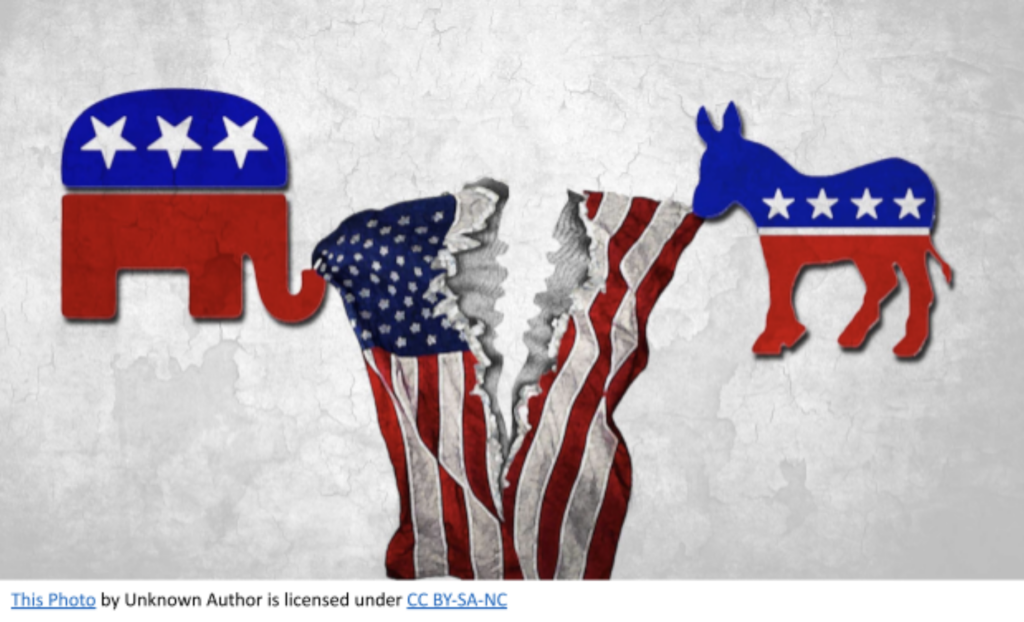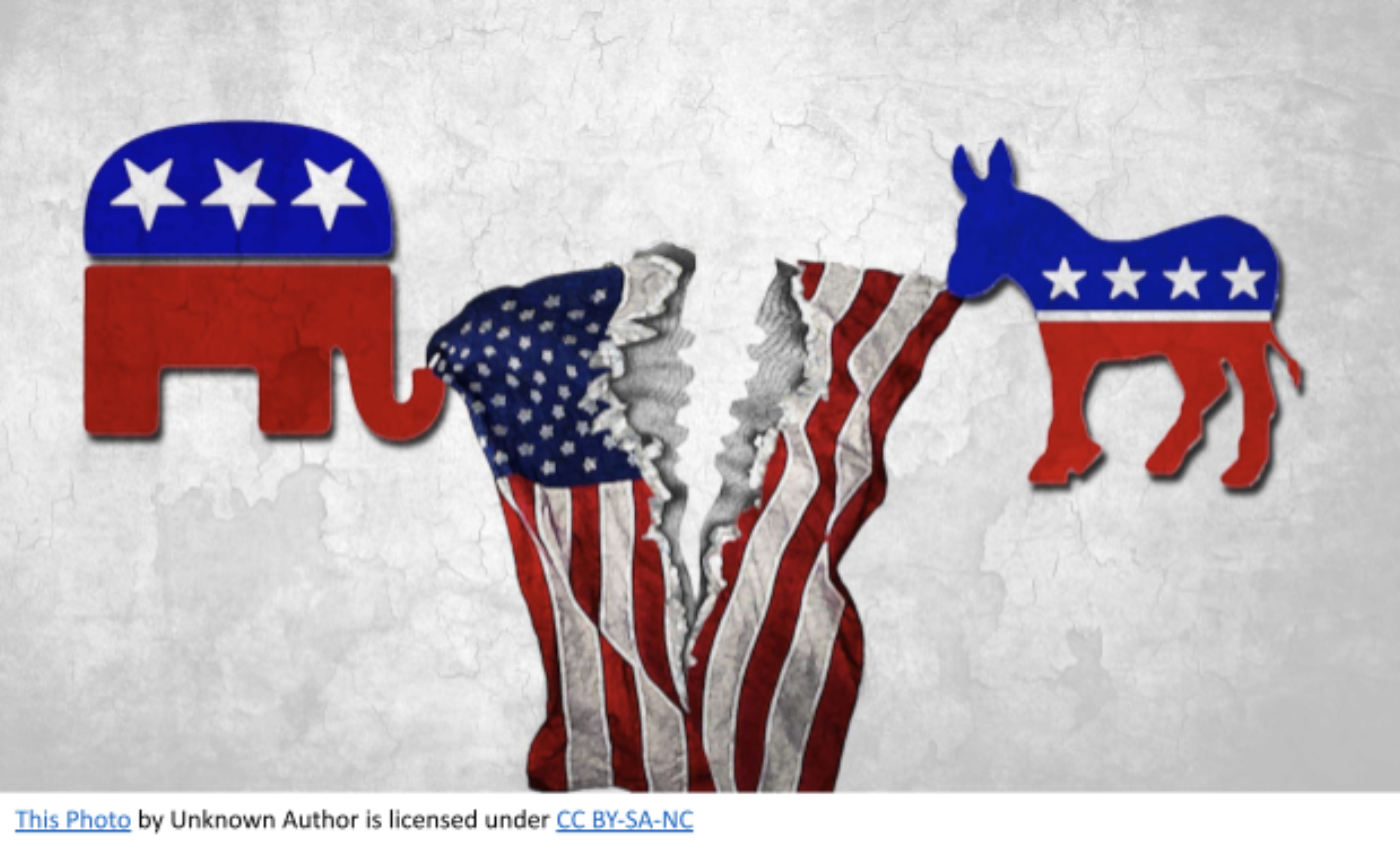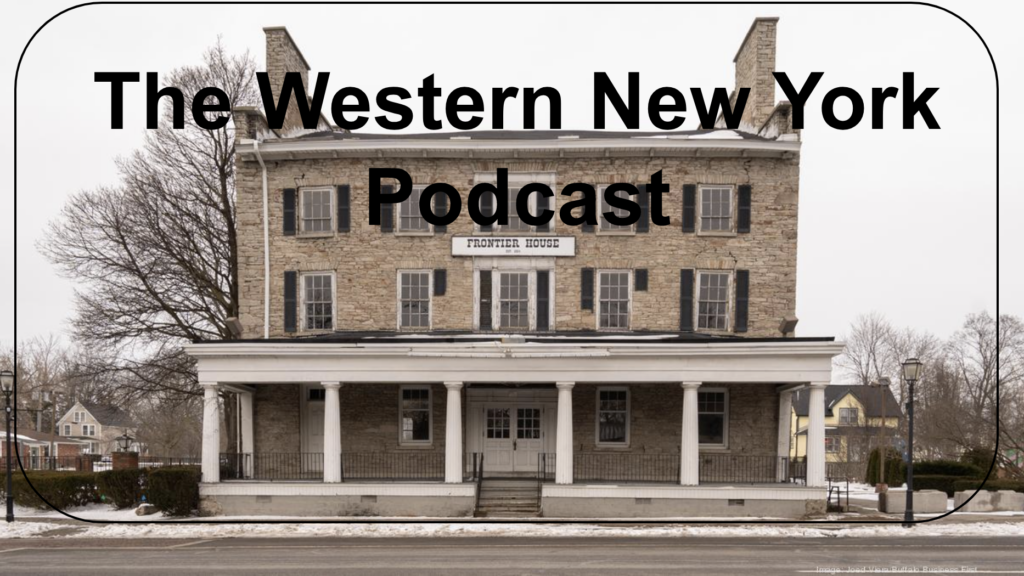Blog post and podcast by Corinthia Davis
Hello everyone! My name is Corinthia Davis and my pronouns are she/her. I am a History major, with a minor in Political Science. After serving in the Air Force a few years, I decided to get out and pursue my bachelor’s online. This is my last semester, and I will be graduating in the summer. I plan on studying the LSAT and getting into law school so that I can be a lawyer for women, marginalized people, and those who have been unfairly convicted. I will admit that I was at first intimidated by the thought of creating a podcast as I have never created nor really listened to one before, but I’m now excited as I love creative projects. For all those who might watch the Sex and The City reboot, And Just Like That, Che’s podcast was the first thing that came to mind when learning we were going to create our own podcasts!
Although I was nervous at the thought of creating a podcast at first, I am so proud of the work I have done. Creating a history podcast allowed me to speak on a topic that I am passionate about and allowed me to learn more about the topic myself as it required a bit of research. Although my podcast proposal did stay on topic throughout the course, I did a lot of modifications. Basically, with the suggestions of my peers and the professor, I found that I had to narrow down my topic or else my podcast could be confusing and go in so many directions. So, the difficult part for me was just finding the direction I wanted to go with my podcast (as I have a lot to say) and organizing my thoughts so that episode one could flow easily into episode two. I found the editing to be easier than I expected. The TwistedWave app made everything so easy to understand for beginners like me. I enjoyed browsing the free sounds and adding in music that blended with my podcast topic! I was surprised at how great my second episode, which included a conversation with a guest, came out. It sounded pretty professional, and I am sure many people will find it entertaining. On that note, I do not mind it being shared on the blog. If anyone is interested to hear a conversation about social issues from a conservative and liberal point of view, I encourage you to check my podcast out. I look forward to listening to everyone else’s podcasts!

- Tagline: United We Stand…Divided We Fall…
- Title: The Divided States of America
- Podcast Topic: A historic focus on the current political and social issues aiding in the partisan divide.
- Titles and descriptions of your two sample episodes: Historical Overview of the Republican/Democratic Parties (Episode 1). The first episode will examine the two main parties and their origins/ideologies, and how they first came to be divided – with important mention of the party platform switch of the 1930’s. It will end by informing the listeners of what to expect in episode two. Immigration, BLM, & Abortion (Episode 2) In this episode, I will sit down with a guest of a different political party and engage in casual, semi-formal conversation with some Q & A. We will talk about our stance on the aforementioned issues and explain why we feel the way we do. In sharing our differing opinions, we might better understand the political divide and provide suggestions that could help to bridge the gap –which is the goal for each episode.
- Topic Ideas for an additional eight episodes: (this question forces you to conceptualize the podcast beyond what you’re producing for the class. At the same time, you’re not actually producing these episodes so have fun with it!) Future episodes will consist of one social issue each so the host and guest can really dive into the issue without rushing it as these podcasts will be short form. Topic ideas for future podcasts include:
3.) Black Voter Suppression – A historic (and current) timeline of policies passed that sought out to disenfranchise/limit the Black vote, as well as the ways in which white male Republicans used fear tactics to try to stop African Americans from voting. Both the host and guest will share their views on current policies intended to suppress the Black vote, especially under the era of Trump.
4.) Climate Change – A political overview of climate change/global warming. Both the guest and host will share their views on climate change, with special focus on former president Trump’s withdrawal from the 2016 Paris climate accord.
5.) Covid-19/Vaccinations – Quick overview of past pandemics/epidemics that affected America to the current Covid-19 pandemic. Both the host and guest will share their views on how the Trump and Biden administrations handled the crisis. Next, both will share their opinions on the mask mandates and vaccinations.
6.) Gun Rights – A historical overview on the Second Amendment concerning the right to keep and bear arms. This episode will dive into policies concerning gun rights as well as mass shootings in America. Both the host and guest will share their opinions on current gun rights and policies.
7.) Same-Sex Marriage – A historical overview of polices passed to prohibit same-sex marriage and the current one passed in 2015 to allow it in all 50 states. Both the guest and host will share their opinions on the policies.
8.) Incarceration & Police Murders – Long-form episode. A historical (and current) overview of Black incarceration and police brutality against Black Americans. This episode will focus on current murders at the hands of police – such as the murders of George Floyd, Breonna Taylor, Tamir Rice, and Sandra Bland. No guest present.
9.) Police Reform – Somewhat of a continuance of Episode 6. A current overview of proposals that aid in police reformation. Both the host and guest and will discuss their opinions on police reforms.
10.) The Legalization of Marijuana – A historical overview of the illegalization of marijuana and its effects, to the current legalization of it in some states. Both the host and guest will share their views on this issue. - Format & Rationale: (long-form? short-form? random and episodic or are does each episode build on the last? one host? two hosts? guests? Biographical? serious interviews? casual, chatty interviews? Critical reviews of historical works?)
Each episode will be in short form format (no less than 10 minutes and no more than 30 minutes). Each episode will not necessarily build upon the last but will stay on topic. The first episode will have one host to introduce the podcast, but the following episodes will include a guest. Those episodes will include Q & A but will be conversational and semi-serious as the topics are on serious social issues. - POV/Approach/Style/Voice & Rationale: (From the POV of a novice? From the POV of an expert? Historiographical? Social-justice-oriented? Storytelling-oriented? Serious and scripted narration? Casual and conversational?)
It will come from the POV of a novice and aspiring activist/student. The first episode is story-telling oriented and scripted while the second episode (and each thereafter) is a bit more casual and conversational with a guest. - Episode Frequency & Rationale: (weekly? monthly? daily? organized into series or not? Is this a limited series? eg. Biographies of all the Kings of Bohemia or a podcast whose topics are theoretically unlimited? eg. Asian history or maritime history)
Weekly series so as to discuss the “trending” political/social issues of the week, and/or social issues in general. - About the Host: What will you tell your audience about yourself? Describe your public persona. What is it about your passions and/or experiences that makes you a viable founder/host for this podcast? How does your identity shape the kind of podcast you can create?
I am the right person to launch this podcast as I have a growing interest in the political field and am excited to share my knowledge and opinions on political matters with others. My passion for equality and equity for people of color, the wrongly accused, and women in all aspects of life help to make me a viable host for this podcast as it is somewhat social justice oriented. Being a history major with a minor in Political Science adds to my viability. My identity as a Black female Democrat shapes my podcast to be the passionate, social-justice oriented forum I am hoping for it to be. - Target Audience: Who are you targeting as potential listeners? Is there more than one intended audience? Be specific, very specific (ie. no “people who like ___topic of your podcast“. Students interested in American political studies, as well as aspiring social/political activists.
- Explain why your podcast topic, format, POV/style, episode frequency, and host identity are attractive to your target audience (eg. A short-form daily podcast that gives quick tips to real estate agents works so well because they can listen on their way to show properties) A short-form weekly podcast that speaks on political and social matters will allow students of American political studies and aspiring activists to stay alert to important current matters in between classes or study sessions.
- Describe two ways you will reach your target demographic (eg. If you are doing a podcast about teaching, you’d target teachers by promoting your pod on an email list subscribed to by teachers). I would reach out to members of social activist groups like the ACLU (American Civil Liberties Union) and send fliers out promoting my podcast on college campuses.
- How will you develop a sense of community and belonging among your listeners? I would allow them to call in and give their opinions sometimes during a live podcast to allow them to feel like an actual member of my podcast “community”. I would also greet them on my podcast so they can feel welcome every time they tune in, i.e., “Hello, and welcome to episode two of The Divided States of America! The politically correct and social-justice oriented podcast where we as aspiring political/social justice activists, dive into the history of today’s current political and social issues to better understand the political divide…”
- What kinds of folks do you anticipate will object to or dislike your podcast? Those who do not care for politics, or those with opposing political opinions to mine – although I will always have a guest of a different political party, not only so that my faithful listeners can stay open-minded to hear the other side, but also so that opposers to my opinion won’t be so quick to turn it off (after all, the goal of this podcast is to bridge the gap).
- What are some ways you can market your podcast to steer away folks who expect something different and will be disappointed? (All pods have hate-listeners, but it helps to be clear to others what you are and what you aren’t so that they can make an informed choice about whether you are for them without having to listen to lots of episodes) I will make it clear in my titles what each episode is about, and each introduction will let listeners know early on what to expect in the episode.
- Why is your podcast needed? What does it DO for people? Your intended audience? The discipline of history? The general public? A special group? For this you will need to do some “market research” by looking at what podcasts are available on Apple Podcast, Stitcher, Spotify, whichever pod platform you prefer to explore) It will help students of political studies and aspiring political and social justice activists explore the deepening partisan divide in America. I hope to shed some insight into how these issues have historical roots that have stemmed from racism, nativism, sexism… By bringing in a guest who is of a different political party than myself, I hope to offer different perspectives so that my listeners stay open-minded. In doing so, my listeners can be inspired to work together with the other side in hopes to bridge the gap – or at least lessen the divide. After all, united we stand and divided we fall…
- How many podcasts currently exist that are similar to yours? Name them. Player FM has quite a few podcasts similar to mine. Some include – “Across the Divide”, “The Braver Angels Podcast”, “The Great Divide”, “Us & Them” …
- Browse some of their reviews on Apple Podcast or other pod platform. What do people like or dislike about podcasts similar to yours? The podcast “Us & Them” had a rating of 4.6/5 stars on Apple Podcast. What people seemed to like most about this podcast is that it is engaging and offers multiple perspectives on political/social issues. However, a few people felt that even with multiple perspectives, the overall tone of the podcast agreed with one side and provided little facts. The podcast “The Braver Angels Podcast” also boasts a 4.6/5 stars on Apple podcast. Listeners enjoyed that the host offered authentic historical information regarding current politics in a passionate way that left them feeling educated and inspired. Many dislikes were due to the host not letting his guests speak enough – they complained that the host should not even have a guest if he just barely allowed them to speak.
- How do you anticipate that your podcast would fare if the same folks were reviewing your podcast? If these same listeners tuned in to my podcast, I think they would enjoy my podcast a little more as I offer two different perspectives on political/social issues and allow my guest to speak an equal amount of time as I will.
- Are there any perceived holes or silences within your podcast’s subcategory that seem like they need to be filled? Yes, I think when it comes to certain political/social topics like abortion, incarceration, and immigration, I would need the opinion/story of a person actually affected by the laws concerning these so that my audience can gain another perspective.
- How does your podcast address a silence or hole in the genre OR what does your podcast do differently than others that are similar? Future episodes of my podcast would involve a guest that was directly affected by the aforementioned issues (like an immigrant, or woman planning an abortion) so that their voices/stories are heard and my audience, both Republican and Democrat, can understand better how these issues are dividing the parties. For now, my podcast features the views of a Republican (guest) and Democrat (me, the host) and our stances on such matters.
- What auxiliary components would you launch alongside the podcast? (eg. website, blog, bibliography, show notes, transcripts, Facebook groups, social media) I would include transcripts for those interested in the topic but might not “enjoy” the sound of my voice or perhaps they want to go back to a certain statement I made to do research on it – in which I would also include a bibliography for any researched information.
- Explore the auxiliary components created by other podcasts. Feel free to use the podcasts you explored in the first two weeks of the course for this part of the assignment. What kinds of add-ons do they have? Many podcasts included an episode website, and a few included transcripts.
- Which auxiliary components would best suit your podcast and your target audience? Why? Since this is an informative and conversational type of podcast, I would make sure to include a bibliography so listeners can do further research as well as a discussion board so they can engage and join in on the conversation.
- How might you make your podcast more accessible for people with disabilities or some other disadvantage that prevents them from accessing your content readily? I would provide the script for those who may be deaf or hard of hearing on the podcast website. The script will allow them to read the podcast. If the podcast was done in video form, I would provide closed captioning so those with a hearing disability can still tune in.
- Describe some of the feedback you received in your peer reviewers and what you did to address these criticisms: Some critique from my peers was due to their confusion on what my main topic was. At the time, my thoughts were everywhere so I did not have a clear goal. After narrowing down my thoughts, I was able to clear the confusion.
- Describe some of the feedback you received from the instructor and what you did to address those criticisms: The main critique from the instructor involved my jumping around so much timewise at first and how I would tie everything together. Because I was trying to do a bit much, I actually ended up leaving a lot of important information out. To address this issue, I reorganized my thoughts so I can narrow down on one particular subject matter. I revised my proposal and found my podcast to be clearer with a clear end goal.



